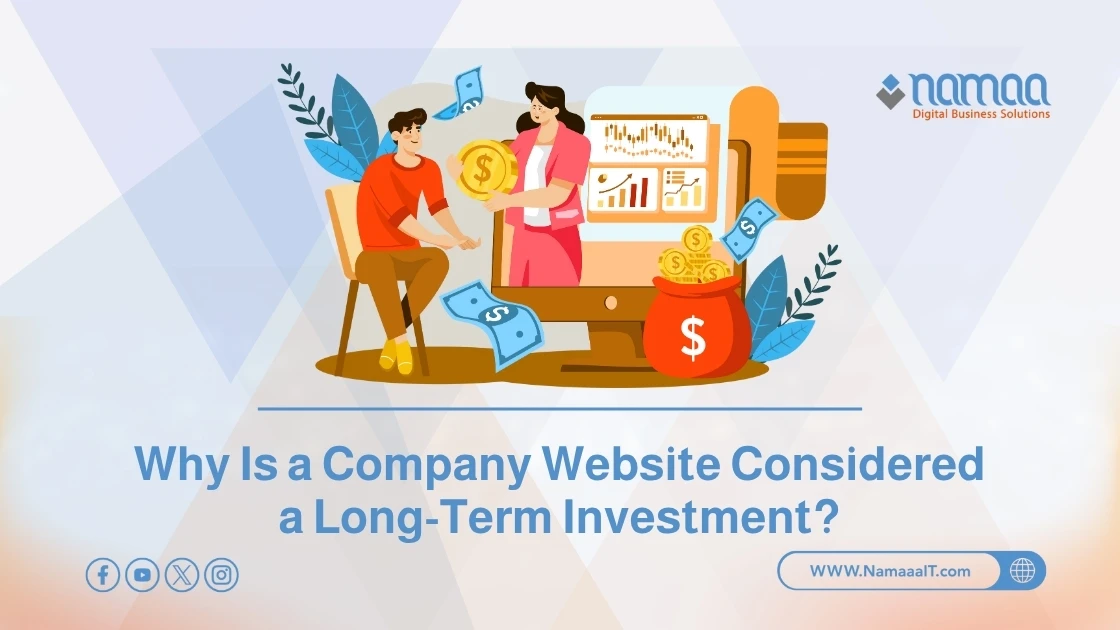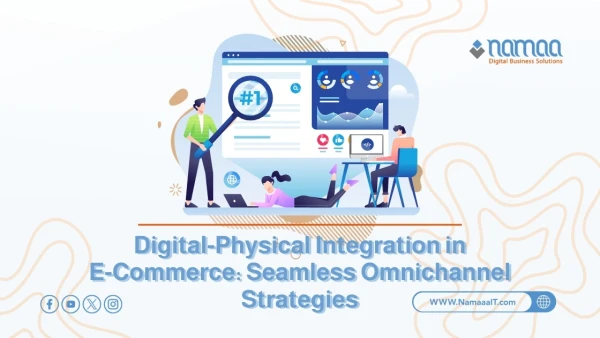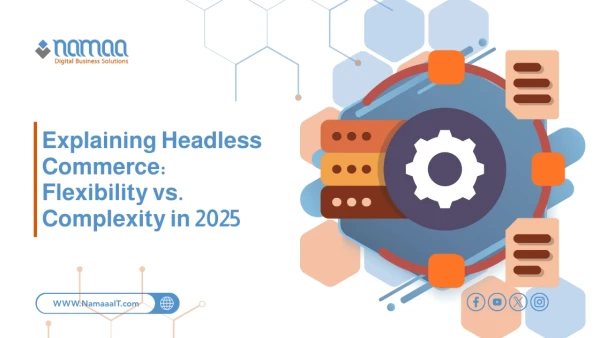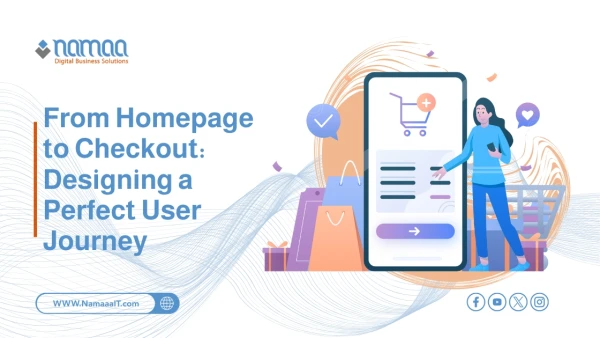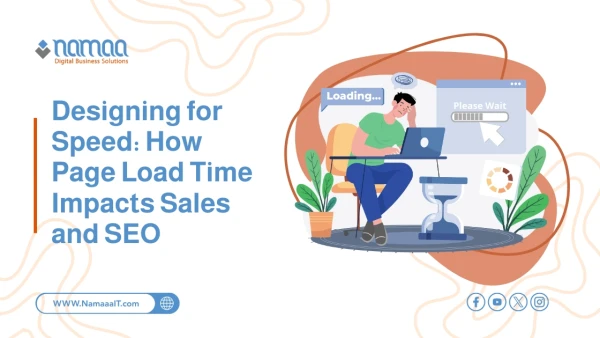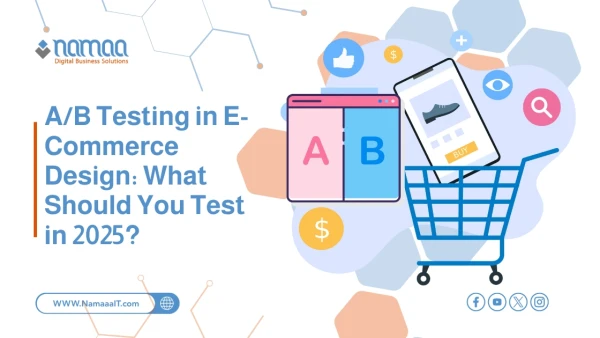A website is not merely a tool to appear online; it is a long-term investment that contributes to strengthening your company’s presence and building lasting relationships with your customers. A strong website serves as a constant reference to attract customers and provide value, ensuring your continued impact in the market. Unlike short-term advertising campaigns, a website can continuously work to improve user experience, increase brand awareness, and drive sales in a sustainable manner. Moreover, it can be developed and updated over time, allowing you to adapt to changes and achieve ongoing growth.
The Importance of Website Development in the Digital Age
Developing your website has become a necessity in today's digital age, where almost everything depends on digital technology to achieve success. A website is no longer just a static display of content; it has become a dynamic platform that interacts with visitors and offers a seamless and engaging experience.
Website development includes performance improvement, ensuring fast loading times, and responsiveness across all devices and screens, in addition to enhancing user experience. In an era where companies rely heavily on digital interaction with customers, an optimized website can significantly strengthen customer relationships, increase loyalty, and boost revenue.
Continuous website updates allow brands to stay in constant contact with their target audience and adapt to market changes. Additionally, a website is an interactive channel through which services and products can be offered seamlessly, helping users make decisions through accurate and engaging information. With consistent website development, companies can build a strong online reputation and enhance their competitive position.
Return on Investment (ROI) in Website Development
Spending money and time on website development is not an unnecessary expense—it is a long-term investment that greatly benefits the company. When a website is effectively designed, it can convert visitors into customers, which sustainably increases revenue.
The return on investment (ROI) from website development becomes evident through enhanced search engine optimization (SEO), which attracts more traffic to the site and increases sales and marketing opportunities. Improving user experience can also lead to longer visit durations, increasing the chances of converting visitors into loyal customers.
Modern websites also use analytics tools to track visitor behavior, helping identify weak points and improve them over time. Thus, website development becomes a powerful tool to enhance business efficiency and reduce operational costs by automating many business processes.
Additionally, a well-developed website helps build trust with customers and functions as a 24/7 marketing tool, always available to showcase products or provide services. In the end, website development is an investment that translates into tangible long-term returns.
Economic Benefits of Investing in a Company Website
Investing in a website is a smart economic decision, as it provides numerous benefits that improve profitability and reduce costs:
- Websites reduce the need for large investments in traditional advertising methods such as TV or print ads, making marketing more cost-efficient and effective.
- A website can serve as a continuous content hub that helps improve search engine rankings, enhancing visibility in search results without ongoing ad expenses.
- Moreover, a website acts as a constant sales channel, allowing you to reach a global audience and enter new markets without additional investment in geographic expansion.
- It can also reduce operational costs by automating tasks such as order processing and payments, saving time and resources.
- Most importantly, a website strengthens customer relationships, leading to increased sales through direct and continuous interaction. When your website aligns with customer needs, it becomes a steady source of revenue and growth.
The Website as a Tool for Expanding Digital Marketing
In the rapidly evolving world of digital marketing, a website is one of the most essential tools for expanding digital marketing strategies. Through SEO, a website can top search engine results and reach a wider audience, increasing the effectiveness of marketing campaigns and boosting brand visibility online.
Furthermore, your website can be linked to paid ad campaigns on search engines or social media platforms to drive traffic and increase engagement. It also serves as an ideal platform for content marketing, where you can publish articles, blogs, and videos that promote brand awareness and attract potential customers.
With built-in analytics tools, companies can monitor visitor behavior and gain valuable insights into their needs and preferences—helping to customize marketing campaigns and increase their effectiveness. In addition, the website can integrate with email marketing strategies by collecting and analyzing data to personalize messages based on each visitor’s behavior. In short, the website serves as a launchpad for expanding digital marketing efforts and strengthening a brand’s online presence.
How a Website Helps Develop Sales Strategies
A website significantly contributes to developing sales strategies by providing a comprehensive platform that enhances customer experience and increases business opportunities:
- It allows users to browse products or services easily, enabling them to make more informed purchasing decisions.
- It offers detailed information such as specifications, prices, and reviews, helping customers make confident decisions—thus increasing the likelihood of completing sales.
- Moreover, the website boosts customer engagement through instant responses to inquiries via live chat or email, which builds trust in the brand.
- The website also accelerates the sales process by providing secure and easy payment options, reducing the time gap between interest and purchase.
- Email marketing strategies can be integrated with the website, collecting customer data to customize promotional offers or send tailored marketing messages. This level of personalization helps increase conversion rates and boost sales.
- Interactive tools such as special offers or limited-time discounts can also be embedded to prompt quick decisions.
- Through these strategies, the website evolves from a simple display tool into a powerful engine for developing sales strategies and increasing revenue.
The Website's Role in Enhancing Your Company’s Reputation
A website is one of the most powerful tools for enhancing your company’s reputation and building a strong image in the market:
- It serves as a visual interface that reflects your professionalism and dedication to providing an excellent customer experience. The better your site is designed to meet visitor needs, the higher the chances of building trust and loyalty.
- The website also offers an opportunity to showcase credible, valuable content that reflects your expertise—strengthening your reputation as a trusted partner. By offering detailed information about your products or services and displaying testimonials or positive reviews, your website becomes a trusted source for visitor reassurance.
- Furthermore, it enhances customer interaction through features like a Frequently Asked Questions (FAQ) section or direct support channels, positively impacting your reputation via effective communication.
- Providing educational content or valuable articles in your industry also demonstrates that your company is not just selling—it genuinely seeks to benefit the customer.
- In summary, the website is a vital element in building a strong and trustworthy business reputation, especially when managed professionally and aligned with high-quality standards.
read more: Polaris, Shopify, or Zid: Which Platform Best Fits Your Saudi Brand?
The Importance of Continuous and Updated Content in Website Success
Fresh, consistent content is one of the key pillars for the success of any website in the digital age. The more frequently a site is updated with new, useful content, the greater the chances of attracting new visitors and maintaining ongoing engagement from existing customers.
Updated content adds value to visitors, whether through educational blogs, videos, case studies, or product/service updates—helping to build long-term relationships with your audience. Furthermore, continuous content updates help improve the website’s ranking in search engines (SEO), as platforms like Google favor websites that regularly publish fresh content.
This increases the site’s visibility in search results and drives more organic traffic. On the other hand, updated content enhances your website’s credibility in the eyes of visitors and potential clients. If your site provides accurate, reliable information, it reflects your company’s professionalism and strengthens its reputation.
Additionally, continuous content opens new engagement channels, such as comments or shares on social media. The higher the quality and relevance of the content to your audience’s needs, the greater the chances of long-term website success. In short, consistent and updated content is essential for keeping your website effective and is one of the most important factors for standing out in a competitive online landscape.
Summary
✅ A website acts as a 24/7 platform, allowing continuous customer access anytime, anywhere.
✅ An optimized website can improve SEO, attracting visitors naturally and consistently.
✅ The ROI from website development is clearly reflected in better SEO and higher engagement.
✅ A website enables accurate audience targeting using tools like SEO and social media marketing.
✅ Enhancing user experience on the website boosts conversion rates and increases sales.
✅ Continuous, updated content improves search engine rankings, bringing in new traffic regularly.
✅ The website serves as a tool to develop sales strategies through detailed information and direct customer interaction.

